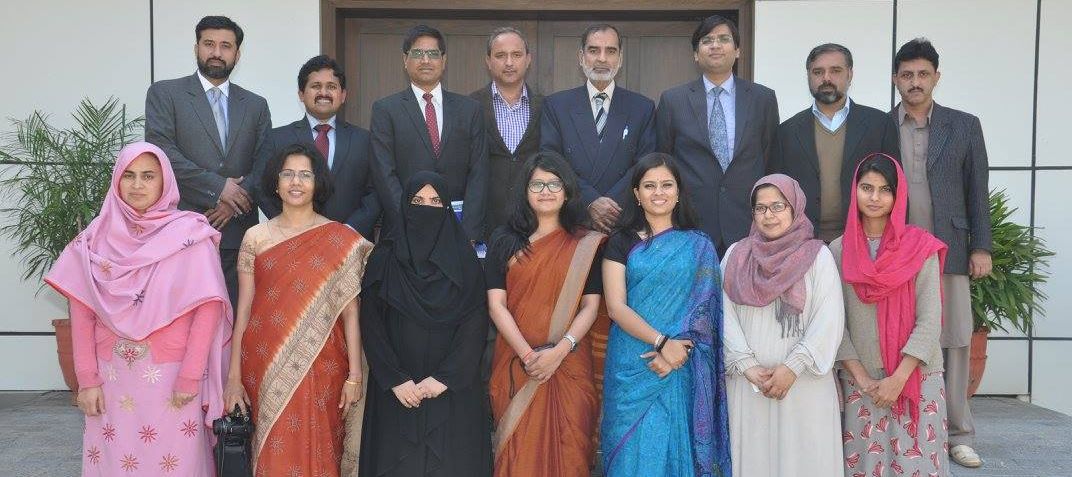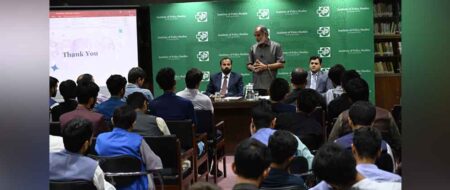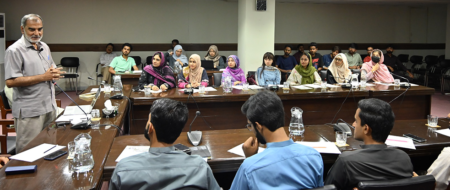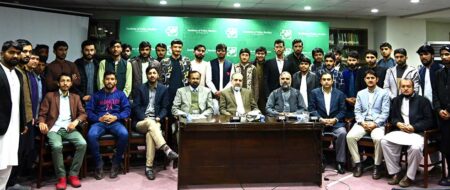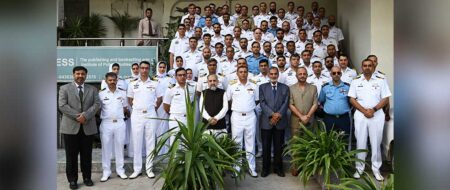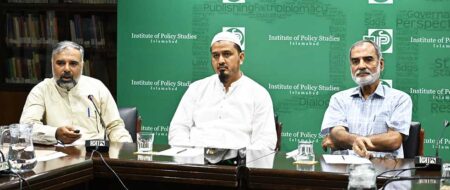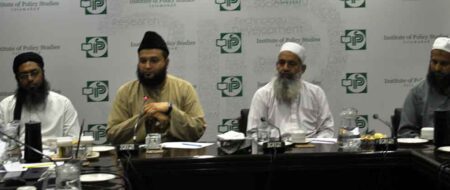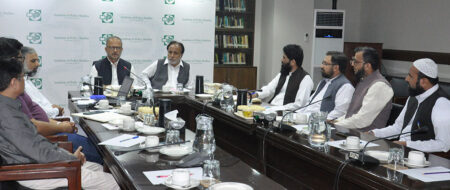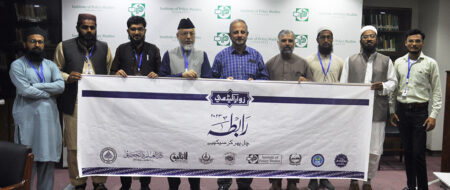Indian Foreign Service trainees visit IPS; strategies for cooperation, conflict resolution discussed
While it was essential for India and Pakistan to improve bilateral ties and cooperate with each other in view of the emerging regional and global scenario, it was not possible to move forward without addressing the core issues which have caused conflicts and rivalries between the two countries over the years. Any plans without the resolution of these disputes, including Kashmir, could never lead to a long term solution.
The message emerged from an interactive session with a delegation of trainees of Indian Foreign Service (2014 batch) that visited Institute of Policy Studies (IPS) – Islamabad, on March 20, 2015.
The delegation was led by Dr. Piyush Singh, First Secretary (Political), Indian High Commission, Islamabad. The guests had a detailed heart-to-heart discussion with DG-IPS Khalid Rahman and other members of the Institute’s research team. Irfan Shahzad, IPS Lead Coordinator and Naufil Shahrukh, Head of Outreach were also present on the occasion.
The delegates were of the view that with China becoming an economic giant and India’s recent growth, the region boasted immense potential to become the economic powerhouse of the world. This, however, could only be possible if the prevailing conflicts were resolved.
The delegates also urged for building trust between Pakistan and India and suggested various potential areas of cooperation between the two countries such as economic opportunities and environmental concerns. They believed that the increased economic synergy between the South Asian countries will ultimately lead the region to the political position of global strength.
DG-IPS Khalid Rahman conformed to the notion of economic potential of the region and stressed that India, with its emerging status in the global arena, can play a proactive and positive role not only to improve its relations with Pakistan and ensure peace and stability in the SAARC region but also to change the world paradigm, which at present allows power to remain concentrated in the hands of the permanent member countries of UN security council.
In the context of India’s potential of becoming a member of Security Council, he said that India had options to either become a part of the prevailing global system that was not very successful in solving the problems of today’s world, or proactively play a greater role by challenging the present paradigm and striving for the resolution of global problems.


